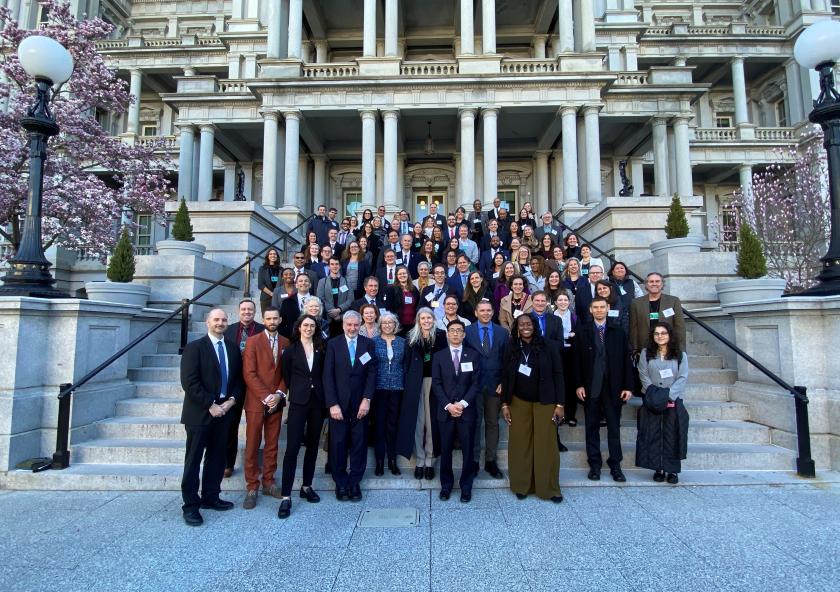
Leveraging campus and community-scale climate change solutions

June 2024 Update: The Report of the Forum and Workshop on Campus and Community-scale Climate Change Solutions is now available to be viewed or downloaded here.
Many colleges and universities operate like small cities and towns—managing housing, fleets of vehicles, utilities, and more. They also face some of the same challenges with increasing extreme weather events, the need for resilient infrastructure, and the challenges and opportunities of responding to evolving climate policy and legislation. But colleges and universities have resources that many cities and towns do not, including easy access to researchers, well-established communication channels, and centers for innovation and ideation, making them models of transformation needed to respond to a changing climate. This was the premise behind the White House Forum on Campus and Community-Scale Climate Change Solutions co-hosted by the White House Office of Science and Technology Policy and the University of Washington.
The event invited sustainability officers, faculty, and vice presidents of research from colleges and universities across all 50 states, along with federal government officials to share ideas and approaches for scaling sustainability and climate action at college campuses to meet the needs of communities across the country. Represented by Director of Sustainability Julie Newman, MIT joined a cross-section of secondary education leaders from community colleges, public and land grant universities, private colleges, HBCUs, Hispanic serving institutions, Asian American and Native American Pacific Islander serving institutions, Alaskan Native serving institutions, and Hawaiian Native serving institutions.
Newman was featured at the “Campuses as a Proving Ground for Sustainability, Climate, and Energy Solutions” panel, speaking about MIT’s campus as a test bed approach to sustainability and climate action. “This is a tremendous opportunity to bring to bear the knowledge between us, and to think about how to scale these models as a collective,” Newman said of the first-of-its-kind event. As fellow panelists shared how their institutions are focused on scalable solutions for the climate crisis, Newman noted how MIT’s model is designed to reach beyond MIT’s borders. “We have to recognize that we cannot solve for sustainability within the campuses alone,” she said. “We are completely integrated and completely reliant upon local, state, regional, global systems from the supply chain to policy. We have the integrated systems response to sustainability.”
As the panel came to a close, Newman offered how higher education and government leaders could turn lessons from the event into collaborative action. “There’s great potential for universities to work across the federal agencies and leverage existing structures and programs to act and become exemplars and test beds to accelerate innovate, deploy, grapple with, and educate the next generation,” she said.
Additional panels for the day included “College and University Panel: Accelerating Community Climate Solutions through Higher Education Partnerships” and “U.S. Government Panel: Leveraging Higher Education Institutions for Developing Regional Climate Solutions” as well as remarks from staff within the Office of Science and Technology Policy and National Science Foundation.
Watch the full event or view the "Campuses as a Proving Ground for Sustainability, Climate, and Energy Solutions" panel starting at 1:41:35

